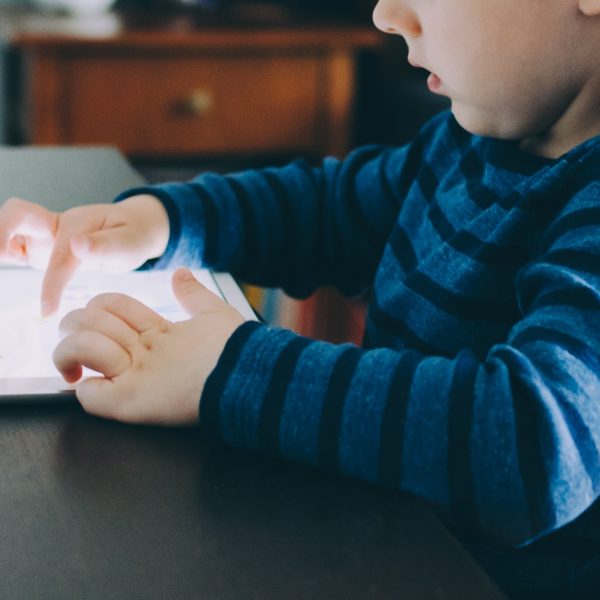Children shouldn’t be online commodities packaged for social media

Researchers from Sydney’s Macquarie University have called for parents and early childhood educators to consider more deeply their rights and responsibilities as creators of digital content featuring children, particularly when such content is shared via social media.
The rise of ‘sharenting’ – that is, using the internet to share pictures, anecdotes or other snippets from the lives of children through digital means such as email, Skype, or a variety of social media platforms – is creating a potential problem for children, as well as possibly violating their rights.
The sharenting phenomenon, it could be argued, extends to include those working in early childhood education and care (ECEC), given the rise of digital documentation sent to parents and families, and the ease with which this is shared far beyond the intended audience.
Researchers have outlined the ‘sharenting’ trend is potentially a problem for children, with digital footprints that ripple wider and last seemingly forever. Screenshots and internet archive sites, Macquarie researchers warned, can perpetuate the life of social media dispatches long after posts or even accounts have been deleted – so fleeting childhood moments become a permanent record.
“We are moving into uncharted waters on the internet, and photos of children and parents which might previously have stuck in an album or emailed to a relative, are now shared and made widely available on sites like Instagram,” said Dr Wayne Warburton, Associate Professor in Developmental Psychology at Macquarie University.
“This public sharing of childhood through photos also moves many of those strange competitions that happen between parents online, and we are starting to ask: what are the consequences?”
Dr Warburton outlined the perspective that social media is neither inherently good nor bad. Some of the positive include a boost to self esteem, and increased feeling of support and validation of parenting or educational practices. There can, however, be unintentional or unexpected consequences, both in the short and long term, and it’s these consequences researchers want parents and educators to be aware of.
For example, Dr Warburton said, the phenomenon of ‘digital kidnapping’ which sees innocent images of children co-opted for advertising, used in fake social media profiles and even more disturbingly, re-purposed and discussed on paedophile image-sharing sites.
Fellow researcher, Dr Joanne Faulkner, who is an ARC Future Fellow in Macquarie University’s Department of Media, Music, Communication and Cultural Studies, said there is a deeper question around the reasoning behind the images educators and parents’ choose to share, noting that many educators and parents select images carefully, appearing to ‘package and commoditise’ children, in order to present a particular image of themselves.
Touching on work regarding the image of the child, Dr Faulkner notes that many adults envisage childhood as an idyllic phase, separate from adult responsibility. For other educators and parents, the images chosen to share reflect their own image of the child – the child as small, the child as helpless, the child as capable, the child as dependent – alongside gender sterotypes. The problem with this, Dr Faulkner said, is that children are not seen as valid individuals in their own right.
Children’s rights to a voice about their images
Associate Professor Warburton said parents and educators largely fail to consider their child’s right to have a voice in how their image is disseminated online.“I think young children do have those rights, and parents (and by extension, educators) need to respect them,” he says.
To counter this, he recommends that parents and educators consider how each image they share could later impact a child. Things which are considered cute or funny at one age may be detrimental at another. A child may feel shame or embarrassment about a photograph which is shared without context.
Recent discussions about parenting and sharing on the internet have raised the issue of the child’s right to an inner life being discounted, Dr Faulkner said, cautioning that children from earliest infancy have interests of their own, which may conflict with the interests and views of the person taking and sharing their images and stories.
“If children’s privacy and subjectivity is respected from the first, children will attain decision-making competency far earlier than if they are not engaged with respectfully,” Dr Faulkner argues.
For further reflection on the rights of the child, and digital sharing, please see this piece, featured in Early Childhood Australia’s publication The Spoke.
Popular

Workforce
Policy
Quality
Practice
Provider
Research
ECEC must change now, our children can’t wait for another inquiry
2025-07-02 07:47:14
by Fiona Alston

Workforce
Practice
Provider
Quality
Research
Supporting successful transitions: Big moves, big feelings
2025-06-26 11:00:30
by Fiona Alston

Quality
Practice
Provider
Research
ECEC in focus - Una Springwood’s intergenerational initiative brings young and old together through connection and care
2025-06-30 10:00:45
by Contributed Content












